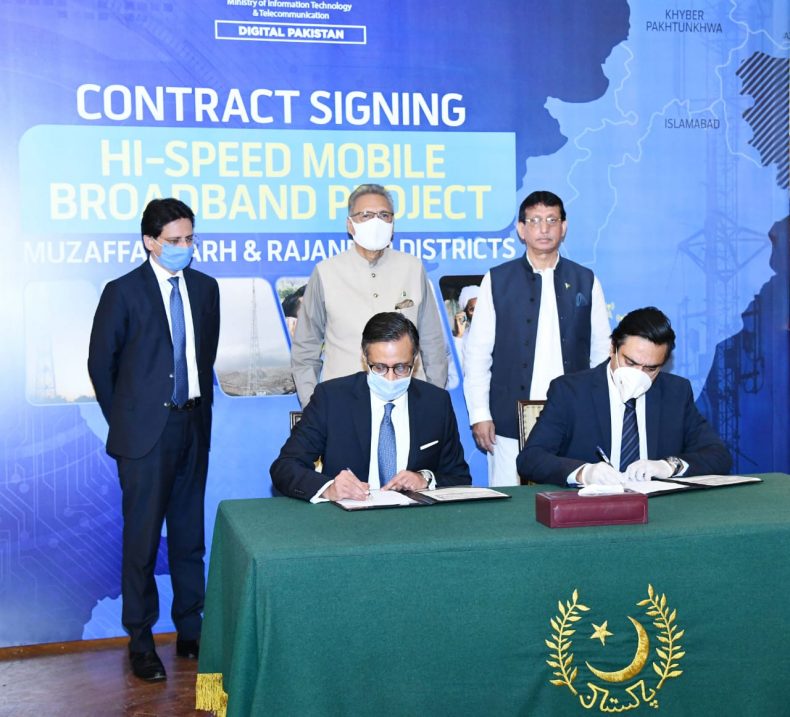
Education
Pakistan on the road to success through the digital economy, education

President Dr Arif Alvi said on Wednesday that Pakistan has tremendous potential in the field of digital economy and digital education and stressed the importance of fast data communication methods in exploiting vast opportunities in these fields.
"Pakistan has high hopes of making advances in the digital infrastructure, digital education and digital finance, and is moving in the right direction to face the challenges of the new pandemic," the President said in his address at the signing contract for high-speed mobile broadband projects in the districts of Muzaffargarh and Rajanpur, in Aiwan-e-Sadr.
President Alvi said the potential highway to prosperity was all about gathering information on the Internet and making it available to people. He stated that the new pattern of life during the coronavirus pandemic called for digitalized structures in areas such as trade, industry, education and health.
He commended the Ministry of Education for introducing new ways of teaching on television to tackle the problems faced by students living in communities with or without low-speed Internet access. The President said that Pakistan was proud to open its first public-sector Virtual University in 2004, providing comparatively low-level education compared to physical institutions.
The President said that e-commerce and e-commerce could prove to be a stimulus to the expansion of the economy due to rapid financial transactions. He said that Pakistan's State Bank was working to launch a digital payment system across the country in October, expressing confidence that this would boost business across the board, including small businesses.
He said that software being at the top of the value-added chain could prove to be an important marketing strategy for goods, and he listed the country's 30 % increase in the software development scenario. President Alvi said that access to information by digitalisation would also provide a forum for women to help them succeed, thus ensuring their empowerment.
He said that digital information could also eliminate 'elite capture' of resources and quoted French economist Thomas Piketty's book 'Capital and Ideology' as defining education and health as two of the top areas of such a notorious culture. He said Pakistan was resisting elite capture through reforms, but India, on the contrary, reported high inequality between 2014 and 2018, as indicated by the French economist with full supporting data.
The President emphasized clear Right-of - Way regulations for telecommunications and telecom providers to adequately resolve problems relating to the construction of signal towers on people's land.
President Alvi said that the Internet could best be used to improve the skilled economy and said that because Pakistan needed one million nurses in the health sector, online training courses could be a great option instead of brick and mortar education.
Federal Minister of Information Technology and Telecommunications Syed Amin ul Haque said that the government is committed to promoting the country's technological capacity to develop and produce a globally competitive IT and industry sector. He said that the delivery of 3 G and 4 G connectivity in the far-flung areas of Balochistan, Khyber Pukhtunkhwa and Gilgit Baltistan will also be assured in the immediate future.
In accordance with the dream of Digital Pakistan, the Ministry of IT and Telecom, through the Universal Service Fund, has conducted a variety of initiatives that have played an significant role in the socio-economic gain of people.
Speaking on the occasion, Irfan Wahab Khan, CEO of Telenor Pakistan, said, "We are committed to empowering the nation with increased connectivity that will have a positive effect by rising inequality and increasing millions of lives. Today, we are one step closer to bridging the internet divide by delivering the quickest mobile broadband services to 2 million residents in Muzaffargarh and Rajanpur.
Our key mission at Telenor Pakistan is to empower communities and build opportunities for every Pakistani, particularly those living in underserved areas.
In their speeches, Chief Executive Officer of the Universal Service Fund Haaris Mehmood Chaudhry and Chief Executive Officer of Telenor Pakistan Irfan Wahab have highlighted the main features of the network.
